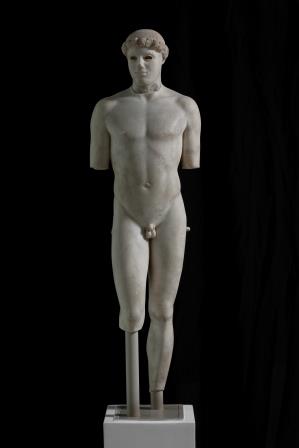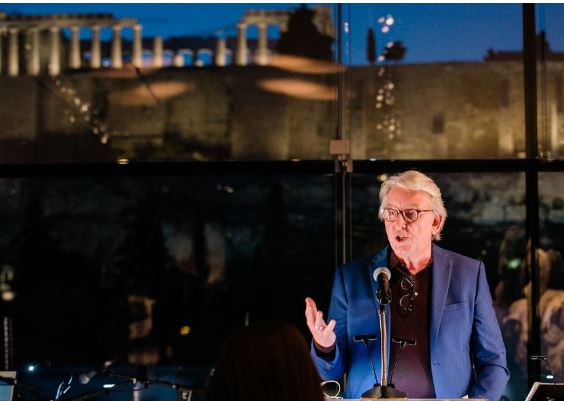Greek Culture Minister Lina Mendoni has pledged to ‘fill the void’ at the British Museum should the Parthenon sculptures be reunited with their counterparts in Athens. It’s a brilliant idea.
The Kritios Boy, a masterpiece of ancient Greek marble sculpture, currently stands atop a pedestal in the Acropolis Museum in Athens. For historians he speaks quietly of the transition from the Archaic to the Classical periods in Greek sculpture (as well as having one of the most beautiful derrières in the history of art). He could potentially be among the many extraordinary treasures never previously exhibited in the United Kingdom but which could be seen in London if the British Museum’s trustees were enlightened enough to accommodate Ms Mendoni’s workable solution to the current impasse over the Parthenon Marbles.

Were the British Museum to agree to reunite the sculptures with their counterparts in Athens, Ms Mendoni has promised that Greece would reciprocate by sending rotating loan exhibitions of ancient masterpieces like the Kritios Boy never previously seen by many UK museum-goers. To realise the many cultural and diplomatic benefits of Ms Mendoni’s initiative would require the trustees of the British Museum to expand their vision beyond considerations of ownership and begin a more cooperative relationship with Athens over the future of the Marbles.
The first stage in that process requires the amendment of the British Museum Act of 1963 which currently prohibits the deaccessioning of objects from the Museum’s collections. The British Government’s refusal to even consider such an amendment has two negative consequences. In the first instance, the way the Marbles are currently displayed in Bloomsbury perpetuates a misleading understanding of their historical importance, denying their original significance as part of the Parthenon’s architectural programme. In the Parthenon Galleries of the Acropolis Museum their connection to the monument is clear and deeply moving.
It is the duty of every museum to promote a fact-based understanding of material culture, historical and contemporary. Where the Marbles are concerned, the British Museum is currently failing in that regard.
Secondly, the refusal to amend the 1963 Act deprives the UK’s museum-going public (as well as visiting tourists) of an opportunity to learn more about the art of ancient Greece through new educational displays.
As a scholar of ancient Greek polychrome sculpture, I have visited the Acropolis Museum on numerous occasions, both in its previous romantically ramshackle location on the monument itself, and on many subsequent occasions following the opening of Bernard Tschumi’s superb new Museum at the foot of the Acropolis in 2009. Few other museums in the world are able to offer as coherent an account of the coloured nature of ancient Greek sculpture as the Acropolis Museum.
The superb ‘Colour Revolution’ exhibition currently own show at the Ashmolean Museum in Oxford testifies to the enduring public fascination with colour and its impact on art and design in the Victorian era. It also touches briefly on one of the central aesthetic controversies of the nineteenth century — the true coloured nature of ancient sculpture.
The British Museum has been guilty in the past of scrubbing the Parthenon Marbles with wire brushes in a misguided attempt to whiten them. It now has an opportunity to absolve itself of those errors by reopening the conversation with Athens.
The immediate and long-term benefits are obvious for all to see. George Osborne has an opportunity to cement his legacy by persuading his Eton and Oxbridge colleagues in government to revisit the British Museum Act. Mark Jones might also go down in history as more than merely an “interim” director of the Museum but rather the man whose brief custodianship opened a new chapter in museum diplomacy.
Dr Tom Flynn
